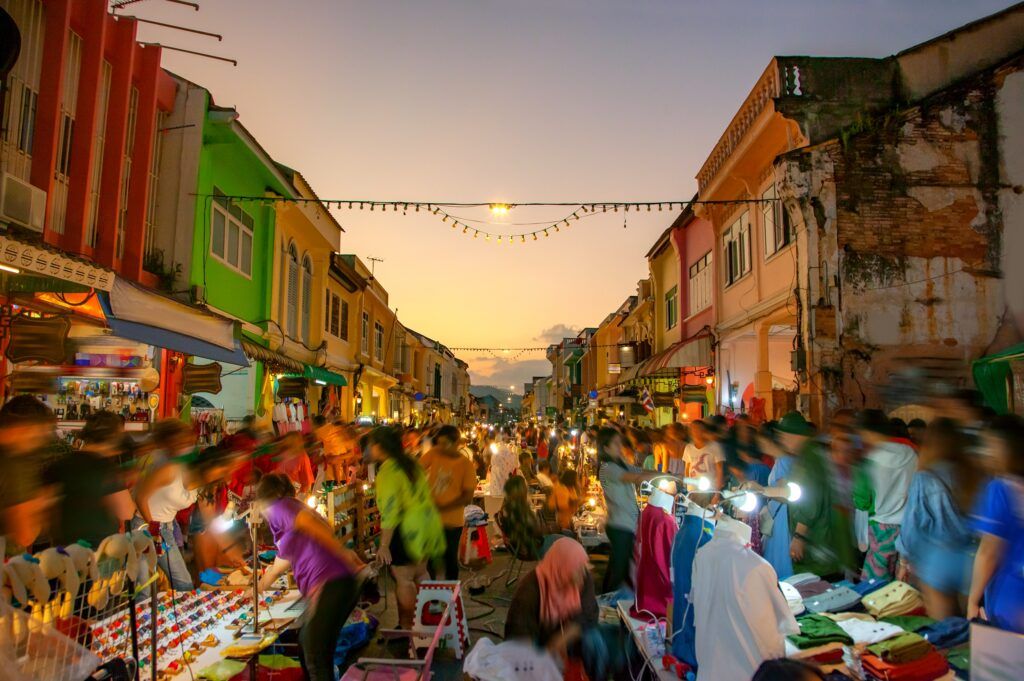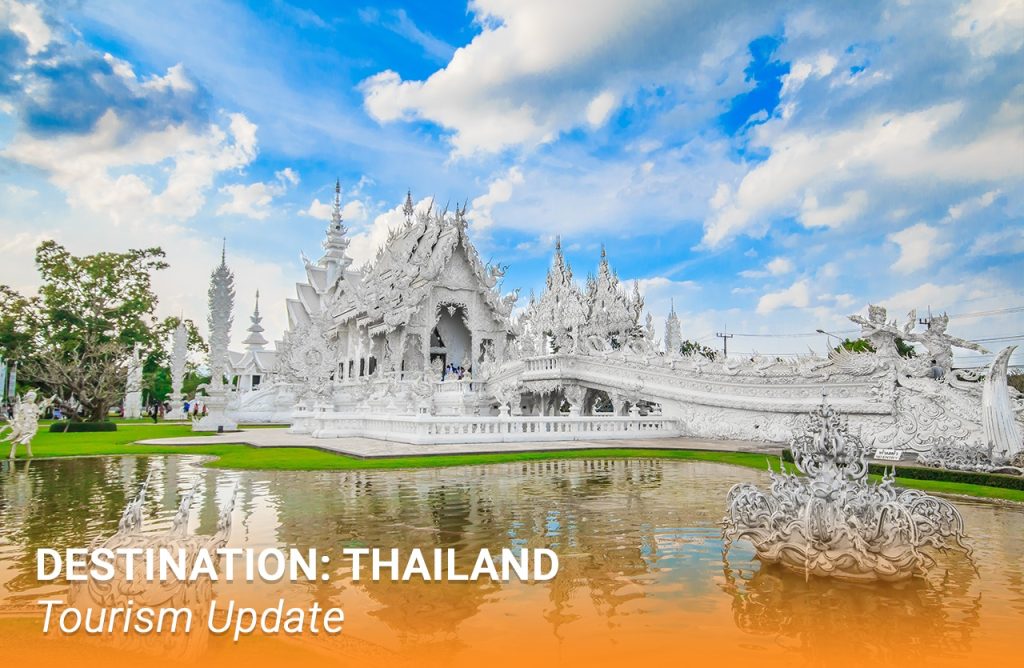
Industry leaders are expressing optimism for 2024 even though Thailand’s tourism industry has not fully recovered to pre-pandemic levels either in terms of foreign tourist arrivals or revenues.
Indications that support the positive forecast were recently revealed at the Thailand Tourism Forum 2024 (TTF 2024), the respected annual forum focusing on the tourism/hospitality industry.
Jesper Palmqvist, Managing Director of CoStar Group’s Asia-Pacific subsidiary, STR Global, revealed that 10,000 new hotel rooms will be added to the Thai market this year, and the majority of these establishments will fall into the upper-midscale category, followed by luxurious accommodations.
Palmqvist added that planned increases included more than 12,000 rooms for the Phuket hospitality sector within the next 2-3 years, signifying a robust commitment to reinvigorating tourism in a key market.
The Tourism Authority of Thailand (TAT) is also optimistic about this year,
Announcing its 2024 target revenue of 3.5 trillion baht – 2.5 trillion from international tourists, and 1 trillion from domestic travellers. Among its plans to achieve this ambitious target are enhancing quality over quantity, promoting sustainable practices, and boosting tourism in “Muang Rong” (secondary cities).
“Thailand has a positive outlook because the demand remains high, close to what it should be. When I saw the TAT target, I thought it wasn’t unreasonable,” Palmqvist said.
While hotel occupancy is still 4% lower than the 2019 level, the RevPAR (Revenue Per Available Room) is still positive, and the average room rate (ADR) is 25% higher than in 2019, according to CoStar, which specializes in data, analysis and marketing.
Bill Barnett, founder of TTF and managing director of C9 Hotelworks, said that although the key destinations of Bangkok and Phuket still faced an oversupply of rooms, the situation has improved and the number of foreign arrivals to the Kingdom should return to the pre-pandemic level in 2025.
AI challenges
As in many other businesses, people in the tourism industry are afraid of the impact of AI, which they feel will affect jobs. Industry leaders at the conference, on the other hand, see AI as good news and bad news.
“Every tourism outfit and hotel are AI companies whether they realise it or not,” Barnett pointed out, adding that the rapid development of AI should be seen as a call to action for hospitality to return to its roots of a service culture as technology frees up humans. “AI would free us up so we can spend more time with our guests,” he said.
The myth that AI is creating a less personable industry was disputed by Aditip Panupong, Google Thailand’s Industry Head of Strategic Partnerships. “With travellers spending more time planning, businesses can leverage AI to simplify their journeys and make their experiences more personalized and seamless than ever before,” he said.
“If you embrace AI technology, you will be able to reduce your costs in the future. I think everyone can buy efficiency. AI can help forecast a lot more efficiently than people so it will have positive impacts on planning and scheduling,” Palmqvist added.
Lifestyle hotels on the rise
The evolution of Thailand’s tourism is aligned with the global trend towards so-called lifestyle travel, which is enjoying healthy and continuous growth globally. The so-called lifestyle hotels have been around for over two decades since W Hotels were first introduced 25 years ago. Since then, more brands in the upscale and luxury segments have followed suit.
Key drivers, including localized experiences, design, art, well-being and technology, have propelled the growth of lifestyle hotels. Palmqvist emphasized that the expansion of this segment is not only taking place in major cities like Bangkok and Phuket but also in smaller markets across the country.
F&B has been a dominant factor in key lifestyle drivers. “Gastronomy has been central in creating elevated lifestyle experiences in Thailand,” said Tourism Authority of Thailand Deputy Governor, Nithee Seeprae.
“The Michelin Guide has promoted high-quality dining in Thailand around the world and we will continue to build and enlarge this profile moving forward,” he added.
Lifestyle hotels have been around in Thailand for quite some time. People come to Thailand not solely because it is cheap. ASAI by Dusit International, The Standard, Kimpton Maa-Lai and many in the mid-range and even lower mid-range have also gone the lifestyle route. Tourists arrive and enjoy the hotel experience, no longer seeing it merely as a place to sleep.
If there is one hotel that has done more to highlight “lifestyle” more than any other it is the pioneering IHG’s Kimpton Maa-Lai Bangkok, the first hotel in Thailand to allow pets.
“This is what we call the discovery effect to create engagement. Our guests identify with it whether it is through F&B, grassroots collaborations or personal delivery. We focus on people rather than roles when we are looking to hire. We hire a character, someone with aspirations. This makes a huge difference,” said Patrick Both, Regional General Manager – Luxury and Lifestyle Thailand, IHG Hotels & Resorts.
Mark Weingard, founder and CEO of Iniala Group, added that tourists come to Thailand because of the people.
“From the way you greet visitors, the warm welcome and fun experience – it’s this hospitality that helps visitors discover what Thailand is all about,”
Weingard said.
By Veena Thoopkrajae (source: Thai PBS World)





